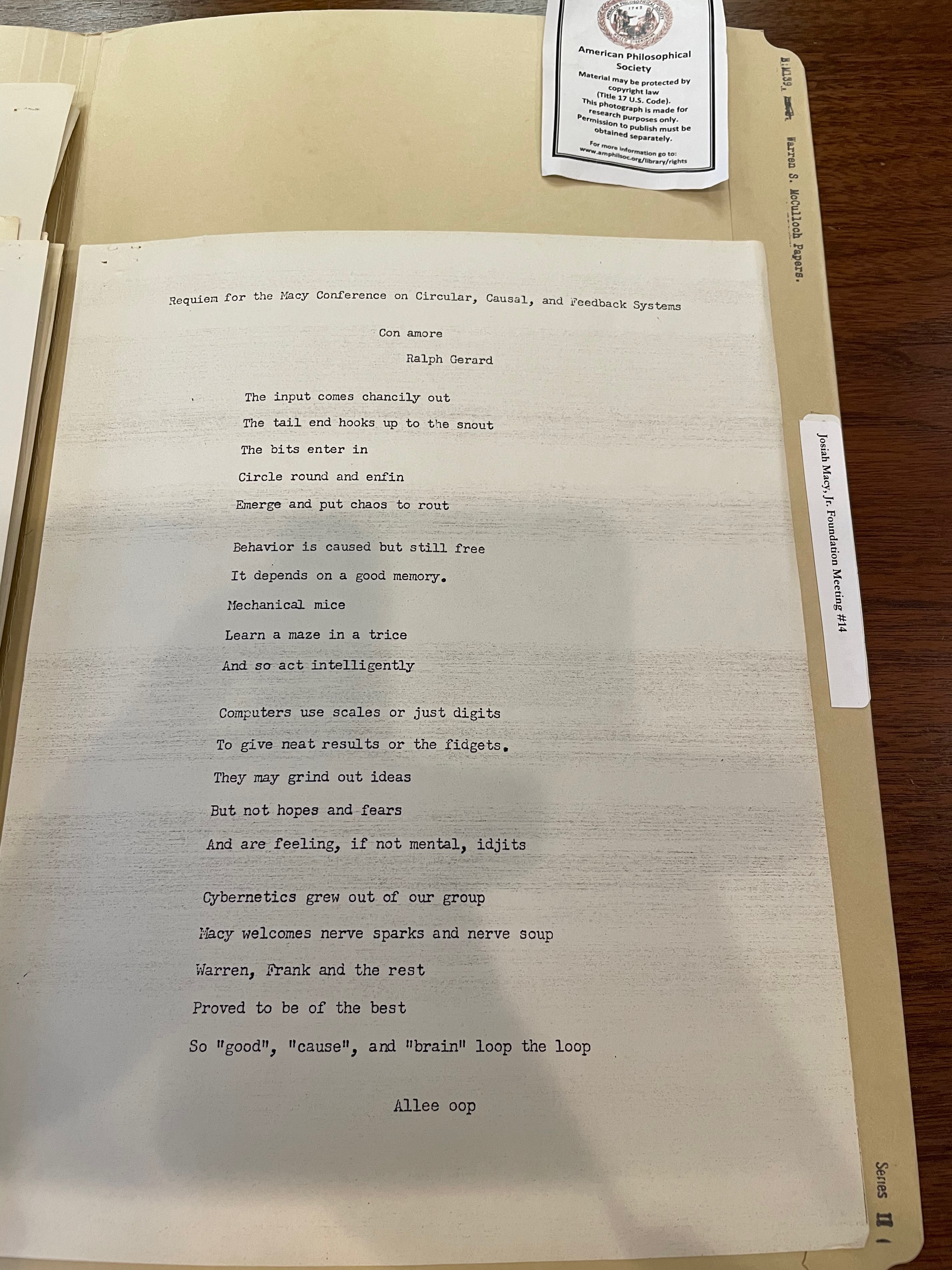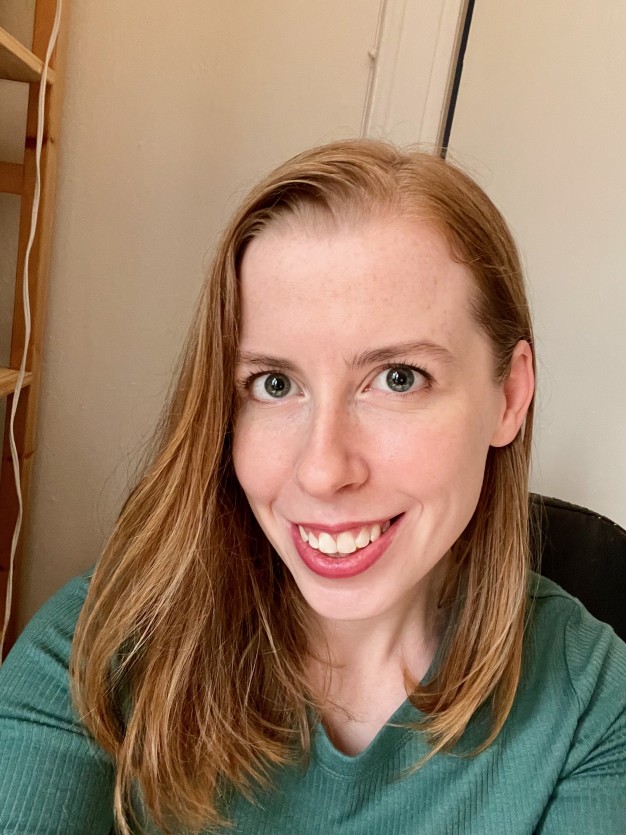Featured Fellow: Libby O'Neil (2023-2024 Eugene Garfield Short-Term Research Fellow)
The Library & Museum at the American Philosophical Society supports a diverse community of scholars working on a wide-range of projects in fields including early American history, history of science and technology, and Native American and Indigenous Studies, among others. Additional information about our fellowship programming and other funding opportunities can be found here.
Briefly describe your research project.
As a Ph.D. Candidate in the history of science and medicine at Yale University, I study the intellectual and social history of systems theory in the 20th century, with a focus on the contributions of émigrés from Central Europe. Systems theorists, especially in the postwar years, attempted to develop scientific theories that could bridge disciplinary differences and respond to the political pressures of the 20th century. My dissertation, “The Sciences of Unity: Organicist Systems Thinking Between Vienna and the United States, 1900-1980,” follows the careers of several Austrian and American scientists involved in the development of systems theory across the 20th century, from interwar Vienna to the Cold War American university. In my research, I ask how technical debates about unity, wholeness, interdisciplinarity, communication, and complexity interacted with larger questions about democracy, faith, and the status of the human in (post)modernity.
What collections did you use while working at the APS?
As a historian of science, I rely heavily on published scientific and popular sources, like journal articles, scientific monographs, newspaper articles, conference proceedings, and even novels. However, science is more than the results published in major journals, and I attempt to supplement these public accounts of science with the personal archives of scientists, looking at correspondence and other unpublished writings. While at the APS, I spent two weeks working through the correspondence and papers of cyberneticist Warren McCulloch (1898-1969). McCulloch made contributions in neurophysiology, computing, electrical engineering, and the philosophy of science, and played a major institutional role in the cybernetics movement. I was especially excited to read his correspondence regarding the Macy Conferences on Cybernetics, a famous series of conferences sponsored by the Josiah Macy Jr. Foundation in the 1940s and 1950s that brought together natural and social scientists to discuss communication between men and machines. McCulloch’s correspondence with other scientists and foundation officials helped me understand the intellectual and institutional forces at play in postwar scientific research, and his unpublished writings gave me more insight into his intellectual development.
I also worked with the papers of Wolfgang Köhler (1887-1967), a prominent Gestalt psychologist who emigrated to the U.S. from Germany in the 1930s and contributed to the spread of Gestalt psychology as a professor at Swarthmore. His expertise in Gestalt phenomena and his attempts to understand the connection between the mind and the brain brought him into conversation with both cyberneticists and systems theorists. To fill in details about how specific European scientists made scientific contacts in North America before WWII, I consulted the papers of LC Dunn (1893-1974) and Raymond Pearl (1879-1940). The papers of anthropologist Ashley Montagu (1905-1999), with his broad social network, offered another window into postwar science.
What’s the most interesting or most exciting thing you found in the collections?
Although it is difficult to choose one example, I was excited to find that the APS’s collection includes the full manuscript for Wolfgang Köhler’s Gifford lectures on psychology, which were never published. I was also intrigued to find quite a few poems about cybernetics by Warren McCulloch and his collaborators—although the poetry itself was of varying quality. An example of this cybernetic poetry, composed by the neurophysiologist Ralph Gerard in 1950, is included here.

Do you have any tips or suggestions for future fellows or researchers?
I highly recommend that other historians of science consider coming to the APS to take advantage of their extensive collections! Before you arrive, it helps to have a clear idea of what you might want to look at so you are not overwhelmed. However, the most important suggestion I have is to make time to get to know the fellows, staff, and archivists working alongside you. Attending the Brown Bag lunches, I learned about several fascinating projects outside my usual research area. The people at the APS made my fellowship enjoyable, and the material I found working in the archive has already enriched my historical project. I am thankful to all the help I received from the archivists and other support staff!
Any suggestions for must-see places or things to do in Philadelphia?
I was lucky to sublet an apartment in the University City neighborhood of Philadelphia, and I loved exploring this walkable neighborhood, even in the summer heat! The cozy blocks feature beautiful houses and apartments shaded by old trees and lush gardens, with plenty of coffee shops and restaurants. I also enjoyed seeing the historic areas of downtown Philadelphia on my lunch breaks.

